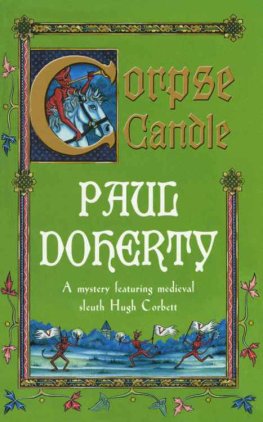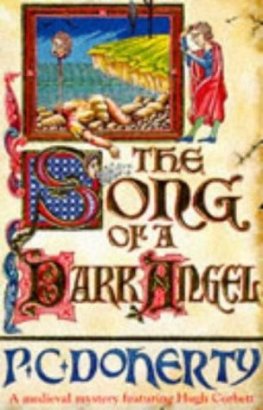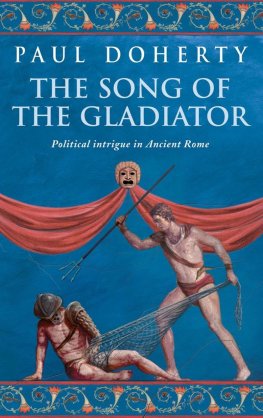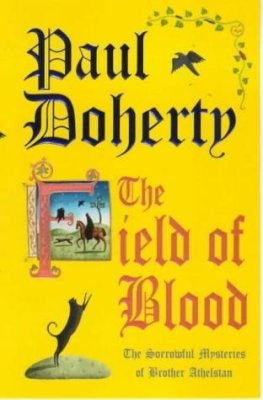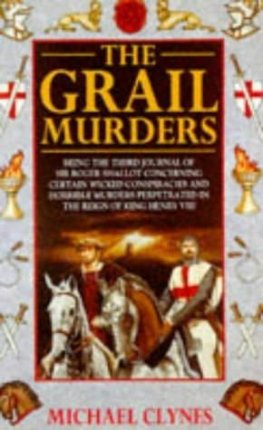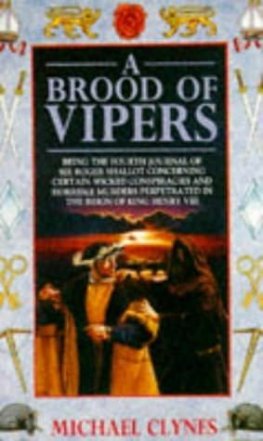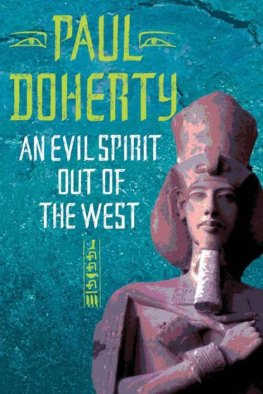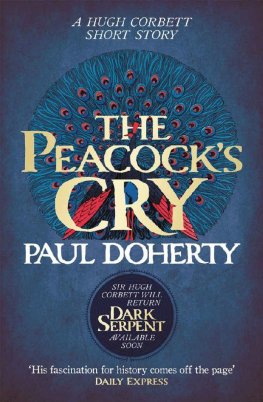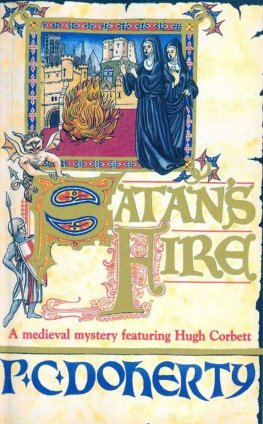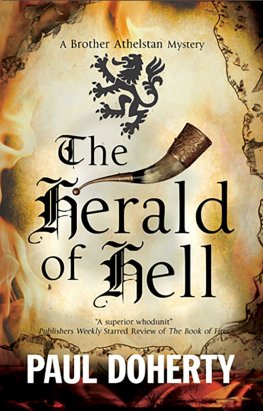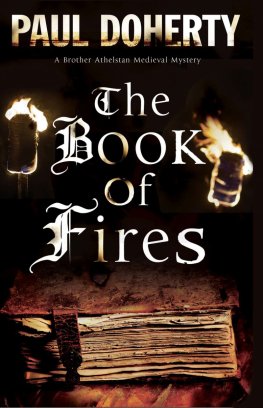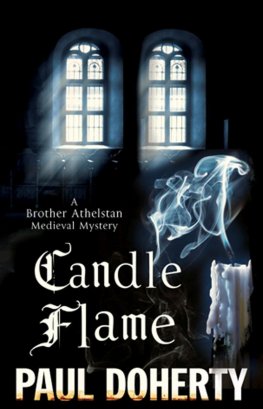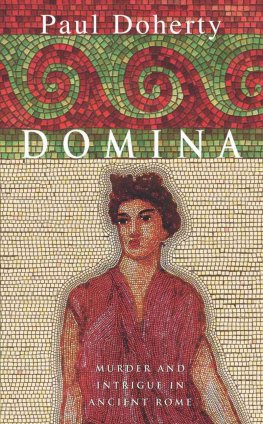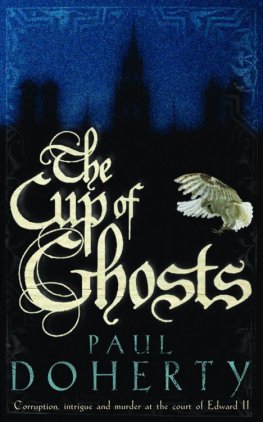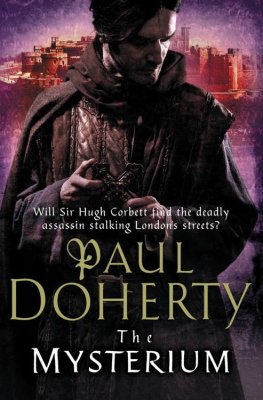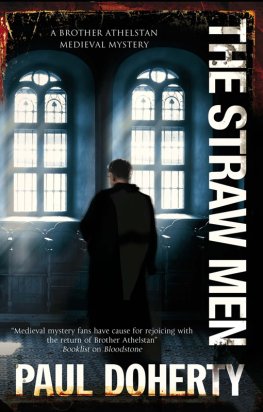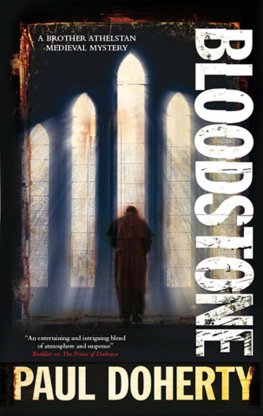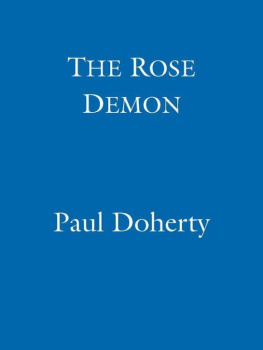Paul Doherty - Corpse Candle
Here you can read online Paul Doherty - Corpse Candle full text of the book (entire story) in english for free. Download pdf and epub, get meaning, cover and reviews about this ebook. year: 0101, genre: Detective and thriller. Description of the work, (preface) as well as reviews are available. Best literature library LitArk.com created for fans of good reading and offers a wide selection of genres:
Romance novel
Science fiction
Adventure
Detective
Science
History
Home and family
Prose
Art
Politics
Computer
Non-fiction
Religion
Business
Children
Humor
Choose a favorite category and find really read worthwhile books. Enjoy immersion in the world of imagination, feel the emotions of the characters or learn something new for yourself, make an fascinating discovery.
- Book:Corpse Candle
- Author:
- Genre:
- Year:0101
- Rating:3 / 5
- Favourites:Add to favourites
- Your mark:
- 60
- 1
- 2
- 3
- 4
- 5
Corpse Candle: summary, description and annotation
We offer to read an annotation, description, summary or preface (depends on what the author of the book "Corpse Candle" wrote himself). If you haven't found the necessary information about the book — write in the comments, we will try to find it.
Corpse Candle — read online for free the complete book (whole text) full work
Below is the text of the book, divided by pages. System saving the place of the last page read, allows you to conveniently read the book "Corpse Candle" online for free, without having to search again every time where you left off. Put a bookmark, and you can go to the page where you finished reading at any time.
Font size:
Interval:
Bookmark:
Paul Doherty
Corpse Candle
PRAEPARETUR ANIMUS CONTRA OMNIA
PREPARE YOUR SOUL FOR THE UNEXPECTED
SENECAPrologue
Shadows, black as pitch, cloaked the abbey of St Martins-in-the-Marsh which nestled amongst the fens of Lincolnshire. A jewel on a green cushion was how one visitor described it. Others, who had experienced the marshs quagmires, treacherous byways and hidden traps, called the fens a place of wickedness. The Sacristy of Hell was how one ancient historian described the deceitful morasses and water-logged fields of this wilderness. Of course, the abbey of St Martins, founded during the reign of the second Henry, was a hallowed place. Its buildings, and the divine services conducted within, had repelled back to Hell the demons who supposedly wandered such a desolate landscape.
St Martins had grown into a great abbey: its monks had drained the fens, creating meadow and pasture, plough land, fisheries, stew ponds, as well as building their lavish church, granaries, outhouses, infirmary, scriptorium and library. The abbey estates neighboured those of the Harcourt family. Sir Eustace Harcourt had founded St Martins after safely returning from a pilgrimage to Outremer where he had survived both the heat and the infidel to worship at the Holy Sepulchre.
Sir Eustace had ignored the legends about how the fens were haunted by the ghost of Sir Geoffrey Mandeville, a robber baron who, with his retinue of ruffians, had harassed the fen men, their towns and villages, and even plundered chapels and churches. Mandeville had died a violent death but, according to the locals, he was condemned for all eternity to haunt this place with his devilish retinue. Many claimed to have heard the rumble of their horses hooves and seen the black-garbed figures sweep through the night. It was an interesting legend but the good brothers of St Martins paid little heed to it, dismissing as preposterous the stories of ghastly horsemen who carried blood-red banners with a huge black V in the centre, the personal escutcheon, or livery, of the demon Mandeville. True, some of the more sharp-eared brothers did whisper how, recently, when they met in the refectory at night, they had heard the shrill blast of a hunting horn, and claimed that some retainers of Lady Margaret Harcourt, a virtual recluse since her husbands disappearance, had heard the same haunting blast. Hadnt Sir Reginald, Lady Margarets former husband, and his cronies once galloped around the fens blowing hunting horns as some sort of madcap joke? Or was it someone else whod gone out at night and pretended to be a ghostly horse-man? Perhaps, they concluded, a peasant had heard this story and decided to play a childish game?
The black-garbed Benedictine monks of St Martins were not too anxious about such tales. They lived comfortably and confidently behind their high curtain wall, protected by an army of lay brothers and estate workers, not to mention their powerful Abbot Stephen, a personal friend of the King. Under his rule, St Martins had grown in wealth and power, patronised by both Crown and Church. Didnt the King and his retinue often stay here when they journeyed into the eastern shires on holy pilgrimage or marched north to war against the Scots? The brothers were only interested in their house, their rule, and the calm routine which marked their day; the wild fens, and the hideous stories about them, were best left to children. The grey-haired hermit, however, who lived by the abbey walls thought otherwise. Few knew his real name. He had been there for years and been given the title of the Watcher by the Gates. Abbot Stephen had allowed him to build a small bothy or hut of intertwined branches which he called his windswept castle. The Watcher by the Gates was more convinced than the monks. According to him, demons, howling like wolves, swept back and forth across the wild fens, particularly when the night turned misty and the corpse candles glowed across the marsh. The good brothers tolerated the Watcher. He was not too clean but lived an austere, shameless life; if the Watcher wished to see things they didnt, why should they object? In the main, their life was one of serenity, of holy calmness. However, from the eve of the feast of St Leo the Great, 10 November in the year of Our Lord 1303, the thirty-first year in the reign of King Edward, the brothers would hastily revise their opinion, for on that night the devil and all his hordes appeared to breach the walls of St Martins.
Prior Cuthbert, Abbot Stephens powerful lieutenant and leader of the concilium, the council of principal officers of the abbey, was certainly not at peace. Tall and beetle-browed, Prior Cuthbert had not returned to his chamber after the community had risen to chant, sleepy-eyed and slouched in their stalls, the beautiful hymns of the office of Prime. Prior Cuthbert was so distracted, hed left the abbey by its Judas gate to stand on the edge of Bloody Meadow. The night was brilliantly cold and the stars, in a cloud-free sky, hung like fragments of ice. Prior Cuthbert stared across the great, circular meadow, its frosted grass glinting under the white light of a full moon. The meadow was fringed by great oak trees as it stretched from the abbey walls down to Falcon Brook, from which a mist was rising. By morning it would be thicker, cloaking the trees, and Prior Cuthbert could already see the corpse candles glowing. The local peasants maintained these were candles carried by devils: depending on how close they came, their light meant that someone was soon going to die. Prior Cuthberts narrow face broke into a smile at the very idea of such stories. Didnt Brother Francis, their learned archivist and librarian, claim such lights were only foul gases emitted by the marshes, and not to be feared? Prior Cuthbert sheltered in the shadow of the gate, hands up the voluminous sleeves of his black woollen gown. This field, for so many reasons, was constantly in his thoughts. Time and again, he and the concilium had argued with Abbot Stephen that the meadow, used for grazing, was the ideal place to build a large guesthouse: a new, spacious mansion with dormitory, refectory, kitchens and butteries, storerooms and cellars to accommodate, in a more luxurious fashion, the many visitors to their abbey.
We must build it, Father Abbot, Prior Cuthbert had insisted. Our house becomes more popular by the year. The growth of trade in the Eastern ports means that we are now a favourite stopping place for merchants, not to mention His Grace the King and members of the court. The meadow, Prior Cuthbert had marshalled his arguments carefully, is ideally situated, being outside our enclosure but close enough. .
Abbot Stephen, as always, shifted in his high-backed, throne-like chair, hands clasped before him. He listened carefully as, when Prior Cuthbert finished, the others joined in: Francis the librarian, Aelfric the infirmarian, Brother Hamo the sub-prior, Richard the almoner and Cuthberts great allies, Gildas the stonemason and Dunstan the treasurer. The latter particularly was always eloquent in his support.
Father Abbot, we have the means. Our coffers are full. In the spring, stone can be quarried and brought here. Within eighteen months. .
The response was always the same. Abbot Stephen would sit back and fiddle with the cords on his hood, his severe face racked in concentration.
I applaud you all, my brothers, for your hard work and industry in this matter. Abbot Stephen would tick his fingers to emphasise his counter arguments. First, we already have a guesthouse within the abbey walls: it may not be luxurious but this is a house of prayer, not some London tavern or hostelry. Secondly, the meadow is used for grazing. Thirdly, as you know, I have great trouble with Lady Margaret Harcourt over who owns Falcon Brook, from which we would have to draw water for a new guesthouse. Brother Cuthbert, you yourself have visited Lady Margaret on a number of occasions: you know she has no time for me or this abbey. She recoils in disgust at my name, God knows why, and claims that I already encroach on her rights. If we try to draw water from Falcon Brook, she would undoubtedly appeal to the Kings Council in London.
Font size:
Interval:
Bookmark:
Similar books «Corpse Candle»
Look at similar books to Corpse Candle. We have selected literature similar in name and meaning in the hope of providing readers with more options to find new, interesting, not yet read works.
Discussion, reviews of the book Corpse Candle and just readers' own opinions. Leave your comments, write what you think about the work, its meaning or the main characters. Specify what exactly you liked and what you didn't like, and why you think so.

